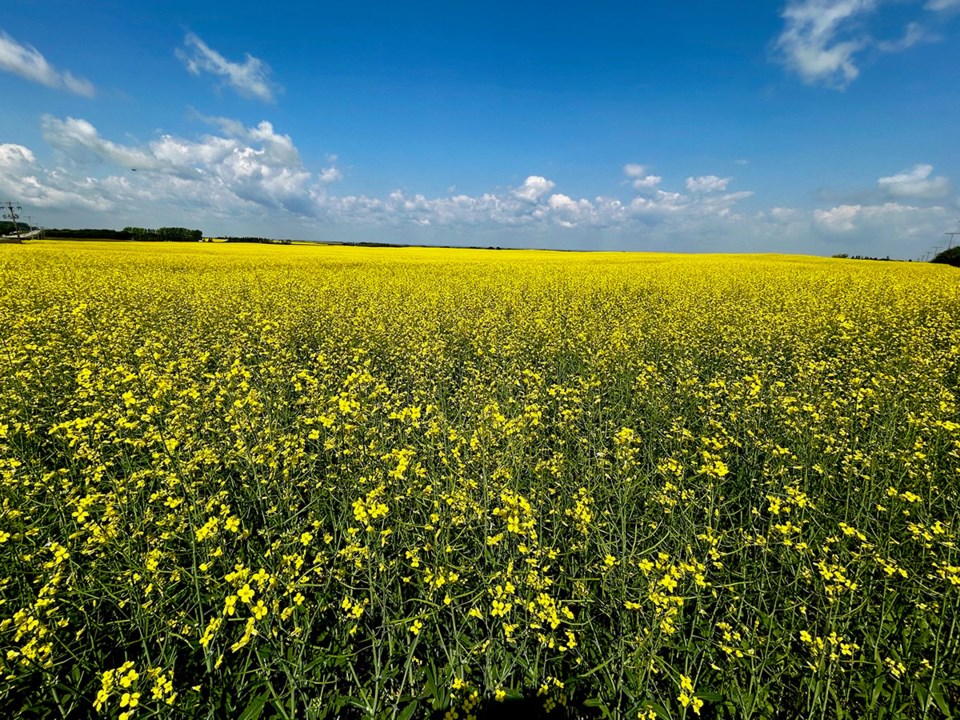WESTERN PRODUCER – Canada should be pushing back against the European Union on agricultural regulations and its attempts to impose its policies on other countries, says a consumer advocate.
The EU has been promoting the idea of “mirror clauses,” in which farmers in other countries must follow regulations that apply to European producers.
If not, the EU won’t accept commodities such as canola and durum from Canada.
“To trade with us, your regulatory level needs to mirror ours,” said Bill Wirtz, senior policy analyst for the Consumer Choice Center, which specializes in agriculture and trade.
The consumer advocacy group is an international organization, with offices in Washington, Brussels, London and Kuala Lumpur.
“You can only export to Europe if the production methods are comparable to Europe.”
Wirtz made his comments about “mirror clauses” while speaking at CropConnect, a conference for Manitoba commodity groups held Feb 12-13 in Winnipeg.
He gave the example of neonicotinoid insecticides to explain how the Europeans want to impose their will on farmers in other countries.
If a rapeseed grower in France isn’t permitted to use a neonic insecticide, the EU won’t accept imports of canola produced in Saskatchewan using a neonic.
That hasn’t happened, yet, but this policy is fundamental to how Europeans approach trade, he said.
It’s not just about protecting their domestic farmers. European policy makers sincerely believe that they are helping Canada.
He said the Europeans believe that if neonics are also banned in Canada, then bees and wildlife are better off and Canada would become a healthier and happier country.
“We don’t do this purely for selfish reasons. We, as Europeans, are so fundamentally arrogant that we think we’re doing you a favour,” said Wirtz, who was born in Luxembourg.
The belief among Europeans that their farms and farmers are superior is not a new problem.
Canada and the EU have had a free trade deal since 2017, but eight years later, the Europeans still won’t accept Canadian food safety standards. That’s caused a trade imbalance in agri-food products, in which EU exporters sell significant amounts of pork, beef and cheese to Canada but only purchase a tiny amount of beef from Canada.
Livestock producers in Canada tolerated the trade imbalance, hoping the Europeans would eventually change their position. But around 2023, some commodity groups ran out of patience.
“Just because another country does something in a specific way doesn’t mean we have to adopt that,” Nathan Phinney, Canadian Cattle Association president, said in 2023.
“We have a world class (beef production) system, a world-class product, and producers that do a world class job. We have to stand up for what we do in Canada and be proud of what we do.”
Wirtz agrees with this position.
Ottawa should call out Europe and its attempt to dictate agricultural production in Canada.
“What I fail to see is the Canadian government properly pushing back against this,” he said, explaining that the European tactics have no traction in Washington, D.C.
If EU reps try to impose mirror clauses on American farmers, U.S. leaders react with laughter.
“In Canada, it (mirror clauses ) is taken seriously. I believe the better approach for Ottawa would be to say just as the Americans, ‘no …. we’re not playing this game.’ ”
As well, the Europeans have changed course on some of their agricultural policies. The EU had committed to cutting pesticide use by 50 per cent by 2030. One year ago, European Commission president Ursula von der Leyen backed away from that plan.
That’s positive, but it doesn’t mean European leaders will suddenly become more open to agricultural trade and accept canola, beef and pork from Canada.
Nonetheless, Ottawa should be taking a stronger stance with Europe, Wirtz said.
“Call out the European bluff when it comes things such as mirror clauses,” he said.
“In my mind, it takes leadership that stands up for Canadian farmers and believes that international trade is important.”
About the author
Related Coverage
Federal Government to remove some barriers to interprovincial free trade
Nutrien says tariffs will lead to higher costs for U.S. farmers
Alberta Federation of Agriculture calls for support from government amidst tariff threats
Report ranks provinces by projected impact of broad U.S. tariffs




